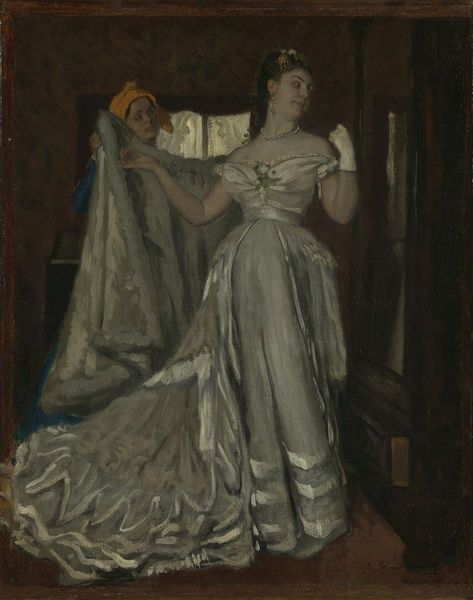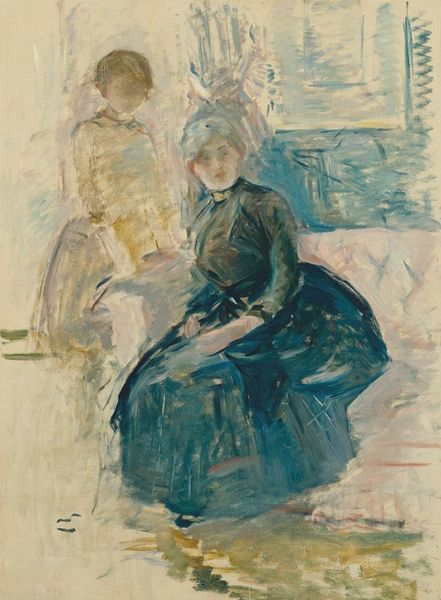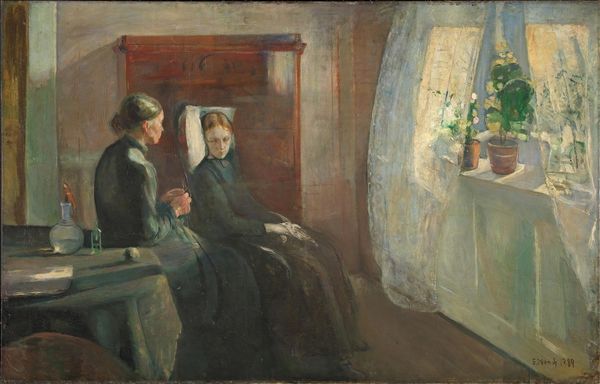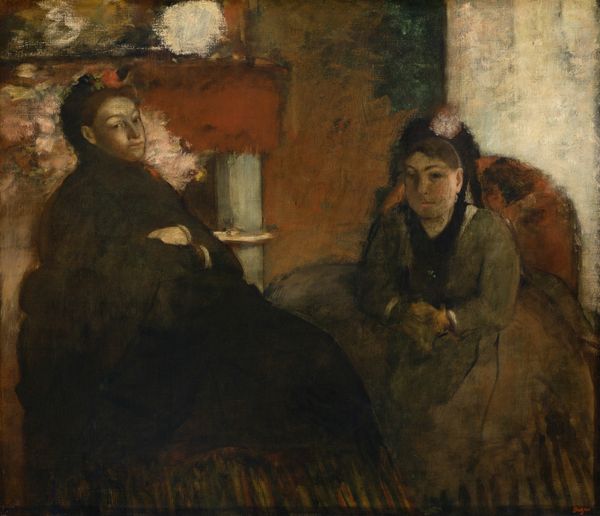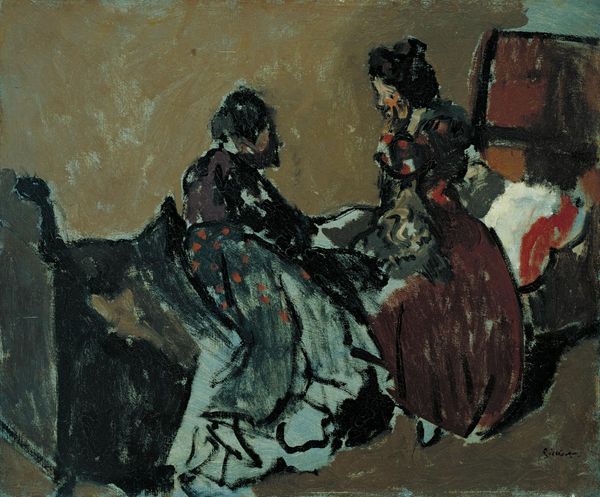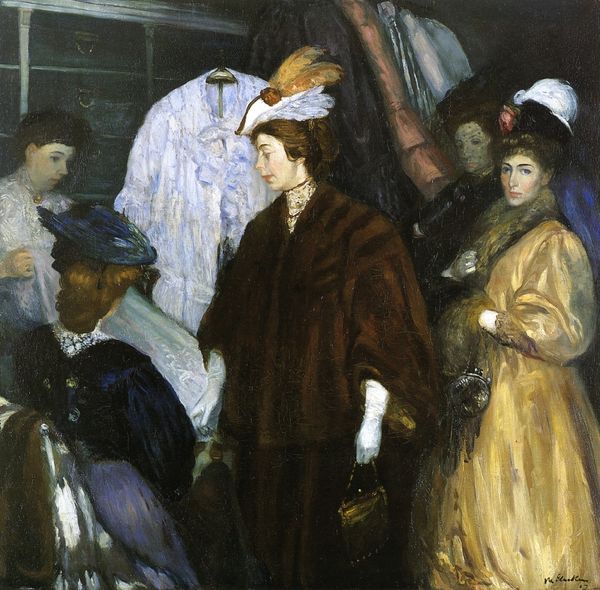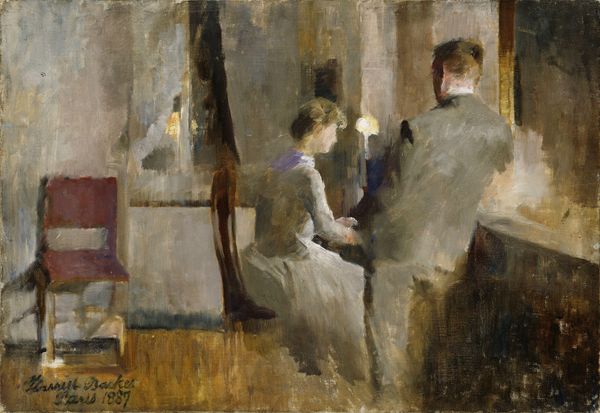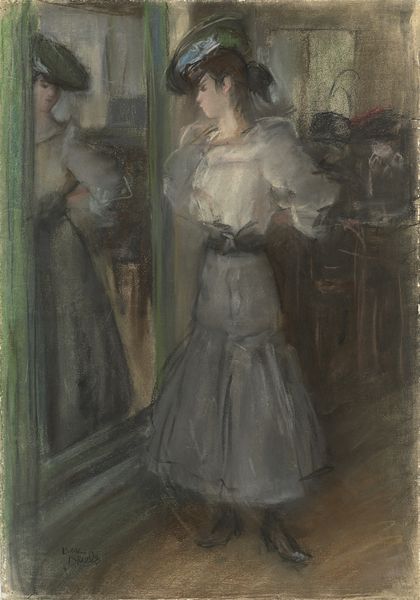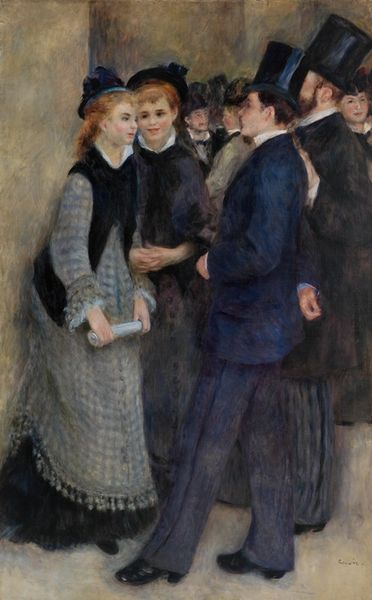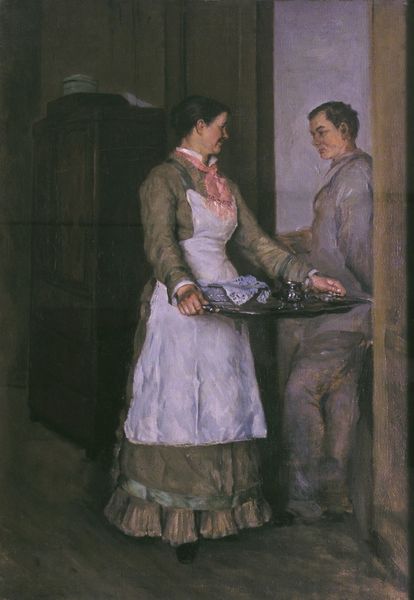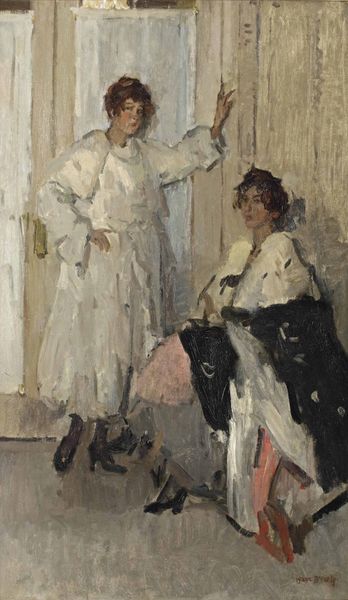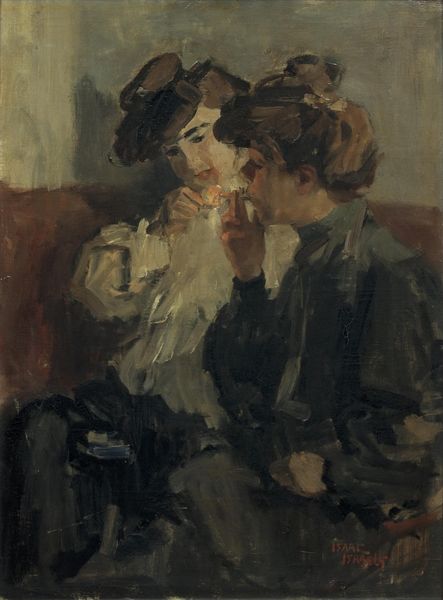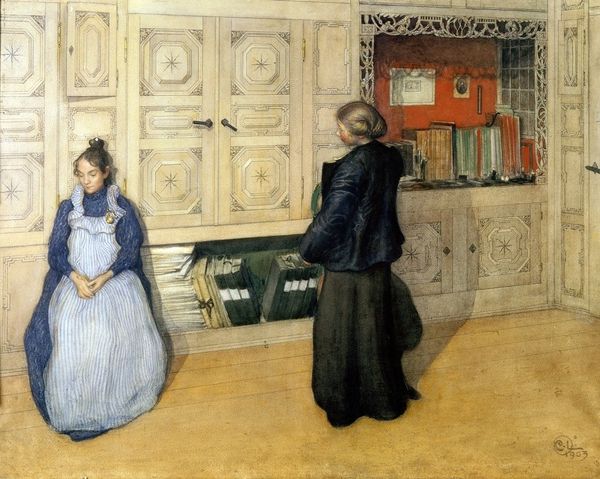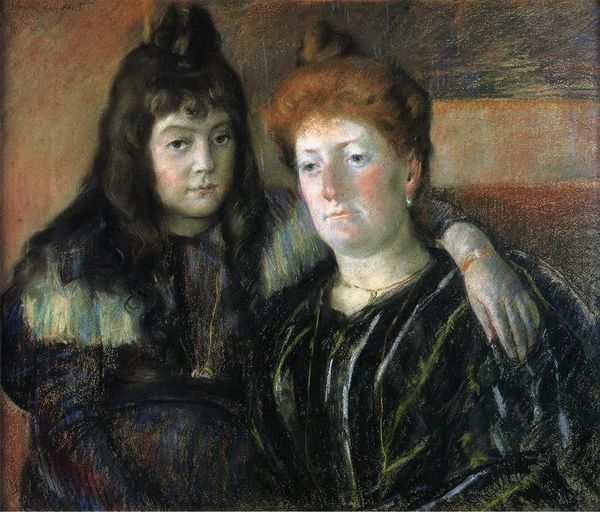
Copyright: Public Domain: Artvee
Curator: Here we have Edgar Degas's "Mrs. Jeantaud In The Mirror," an oil painting from around 1875. It's a portrait, but it plays with reflection in a very interesting way. Editor: My first thought? This woman feels trapped, almost ghostly. The mirror image isn't just a reflection, it's like a shadowy double, gazing back with such solemnity. And those broad brushstrokes, the muted palette, it all adds to this air of… what is it? Elegiac melancholy, maybe? Curator: That melancholy is palpable, isn't it? Mirrors throughout history are powerful symbols, acting as portals into the subconscious. They signify vanity, self-knowledge, even impending doom. Here, Degas positions the mirror as a way to explore Mrs. Jeantaud's internal world, or at least, our perception of it. It reminds me of vanitas paintings of the Dutch Golden Age, where mirrored surfaces symbolize the transience of life and beauty. Editor: Absolutely. She is looking away from the reflection, a profile view as if lost in thought, removed from her own mirrored image. You have the actual woman gazing to the left while her mirrored presence makes unwavering eye contact with the observer. It's like her authentic self has distanced itself from the reflection of the persona she is supposed to represent. Curator: The Impressionists loved capturing modern life, but Degas often injected a psychological complexity that other artists in the circle didn't always explore. And, true, there's a strange detachment here. Mrs. Jeantaud’s averted gaze and obscured features almost dematerialize her presence. We, as viewers, are made uncomfortably aware of our own position outside the mirror—watching. Editor: Makes me think about what is being revealed about female representation during that time and perhaps our voyeuristic tendencies to always search for a hidden subtext. You know, who is she beyond just a well-to-do wife from that era? I love that he manages to capture this haunting reality. Curator: Absolutely, the visual vocabulary employed is striking. This picture offers an opportunity to ponder the artist’s ability to create the cultural construction of melancholy and mystery through a timeless and accessible motif such as the mirror. Editor: I think Degas did an excellent job using the symbolism of the mirror as a conduit, but I still feel a slight disturbance looking at the reflection of Mrs Jeantaud... Curator: An unsettling yet exquisite glimpse into a world both present and receding.
Comments
No comments
Be the first to comment and join the conversation on the ultimate creative platform.
